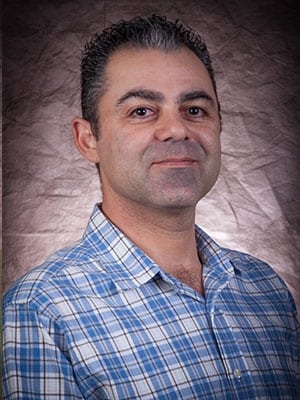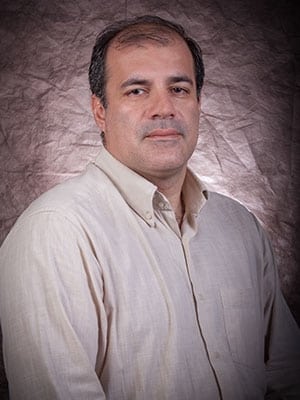Social Work
(MSc, 1.5 Years or 3 Semesters)
Duration
1.5 years
Qualification Awarded
Master of Science in Social Work
Level of Qualification
Master Degree (2nd Cycle)
Language of Instruction
English and Greek
Mode of Study
Full-time or Part-time
Minimum ECTs Credits
90
Request Information
Social Work (MSc, 1.5 Years or 3 Semesters)
| Duration | 1.5 years |
| Qualification Awarded | Master of Science in Social Work |
| Level of Qualification | Master Degree (2nd Cycle) |
| Language of Instruction | Greek / English |
| Mode of Study | Full-time and Part-time |
| Minimum ECTS Credits | 90 |
Request Information
Profile of the Programme
The aim of the Programme is to acquire specialization in the modern approaches of Social Work at a theoretical and practical level. In particular, the knowledge they will acquire will enable them to more effectively practice the profession in public, non-governmental – voluntary and/or private social welfare organizations.
The main objective of the Programme is to develop a horizontal learning culture on social work issues both in Cyprus and in the European area. Students will be able to learn about modern social work theories and methods of assessment and intervention, current social policy, administration of social services as they operate at national and European level. At the same time, to explore the roles and principles of Social Work in a multidisciplinary context in the field of Health and Welfare.
This approach highlights the nature of Social Work, analyzes the way in which the different sectors and services are interrelated and interacting, and identifies issues that require particular attention in order to produce practical and applied knowledge in addressing current social problems and challenges for the discipline of social work.
Specific Objectives
The first specific objective of the Programme is to improve the efficiency and productivity of social workers and professionals working in the social welfare arena. The second specific goal is to understand social challenges posed by the rapid political, economic and social changes at European and global level.
Students will have the opportunity to study in depth challenges presented, to understand different models of prevention and coping with social crises and addressing new needs of service users, both at general and specific level. The Programme is structured in such a way as to gain an in-depth understanding in areas of particular interest.
Career Prospects
Through their attendance and successful completion of their studies, they offer increased opportunities for employment in governmental, non-governmental – voluntary and private organizations operating at a local, regional, national and European level, both at the general level of Social Welfare and in more specialized posts.
Access to Further Studies
Graduates of the postgraduate programme will also be able to undertake PhD studies in Social Work, Social Policy, Public Administration, or any other related area if they so wish. The design of the specific programme takes these perspectives into account, through the possibility of writing a dissertation.
By choosing the dissertation thesis, students will have the opportunity to work on a substantial part of a future research work and are expected to be placed in an advantageous position in their potential application to a PhD programme as opposed to graduates without a dissertation thesis experience.
University of Nicosia social work students also have the opportunity to expand their professional and academic network through the European Association of Social Work (EASSW) where the programme is part of the Executive committee of this organisation. Students can find out about new jobs all over Europe, conferences and training activities through the wide network of EASSW.
Course assessment usually comprises of a comprehensive final exam and continuous assessment. Continuous assessment can include amongst others, mid-terms, projects, and class participation.
Letter grades are calculated based on the weight of the final exam and the continuous assessment and the actual numerical marks obtained in these two assessment components. Based on the course grades the student’s semester grade point average (GPA) and cumulative point average (CPA) are calculated.
The student must complete 90 ECTS and all programme requirements.
A minimum cumulative grade point average (CPA) of 2.0 is required. Thus, although a ‘D-‘ is a PASS grade, in order to achieve a CPA of 2.0 an average grade of ‘C’ is required.
Με την ολοκλήρωση του προγράμματος οι φοιτητές αναμένεται να είναι ικανοί να:
- Κατανοήσουν σε βάθος τις έννοιες, τις θεωρίες και τις διαδικασίες της κοινωνικής εργασίας οι οποίες στηρίζουν το σχεδιασμό και την εφαρμογή παρεμβάσεων σε διάφορες κοινωνικές ομάδες.
- Αναπτύσσουν και να διατυπώνουν διαδικασίες που σχετίζονται με την ποιότητα και την ισότητα στην παροχή υπηρεσιών προς τους εξυπηρετούμενους των οργανώσεων τους.
- Αναγνωρίζουν το οντολογικό υπόβαθρο των κοινωνικών θεωριών, της έρευνας και της πρακτικής στην επιστήμη της Κοινωνικής Εργασίας.
- Υιοθετούν δεξιότητες πρακτικής σχετικές με τον σχεδιασμό την εφαρμογή και την αξιολόγηση παρεμβάσεων σε άτομα, ομάδες, κοινότητες και κοινωνικές οργανώσεις.
- Αποκτήσουν γνώση στις ερευνητικές μεθόδους, στη χρήση και στη δυνατότητα εφαρμογής τους στην διερεύνηση ενός ευρέως φάσματος οργανωτικών, κοινοτικών και κοινωνικών προβλημάτων.
- Σχεδιάζουν και εφαρμόζουν κοινοτικά προγράμματα που στοχεύουν στην προώθηση και ανάπτυξη της κοινωνικής ευημερίας.
- Αναλύουν την κοινωνική πολιτική και να αξιολογούν τις συνέπειες και τις επιπτώσεις της στις ομάδες των εξυπηρετούμενων.
- Οργανώνουν και διευθύνουν αποτελεσματικά κάθε είδους Κοινωνική Υπηρεσία. Να αναλαμβάνουν ηγετικούς ρόλους τόσο για την προώθηση της Κοινωνικής Εργασίας και του επαγγέλματος του κοινωνικού λειτουργού, όσο και για την ενδυνάμωση/συνηγορία των κοινωνικών ομάδων.
- Επικοινωνούν με επιτυχία, συνεργάζονται και μοιράζονται πληροφορίες με άλλους επαγγελματίες και οργανώσεις Υγείας και Πρόνοιας στον προσδιορισμό της ανάγκης για αλλαγή, της εφαρμογής στρατηγικών αλλαγής και της αποτελεσματικής διαχείρισης προγραμμάτων.
Section: A – Major Requirements
Min. ECTS Credits: 60 Max. ECTS Credits: 60
| Course ID | Course Title | ECTS Credits |
|---|---|---|
| SOWK-510 | Theory and Practice in Adult Services | 10 |
| SOWK-511 | Advanced Decision Making | 10 |
| SOWK-512 | Social Research Methods | 10 |
| SOWK-520 | Methods for Family Interventions | 10 |
| SOWK-521 | Group Work Practice | 10 |
| SOWK-522 | Management of Social Care Organisation | 10 |
Section: B – Electives
Min. ECTS Credits: 30 Max. ECTS Credits: 30
| Course ID | Course Title | ECTS Credits |
|---|---|---|
| SOWK-530 | Supervision in Social Work Practice | 10 |
| SOWK-531 | Inter-Professional Working | 10 |
| SOWK-532 | Community Planning, Development and Fundraising | 10 |
| SOWK-533 | Psycho-Social Interventions in Community Settings | 10 |
| SOWK-534 | Promotion of Mental Health in School, Families and Communities | 10 |
| SOWK-590 | Thesis | 20 |
Semester 1
| Course ID | Course Title | ECTS Credits |
|---|---|---|
| SOWK-510 | Theory and Practice in Adult Services | 10 |
| SOWK-512 | Social Research Methods | 10 |
| SOWK-520 | Methods for Family Interventions | 10 |
Semester 2
| Course ID | Course Title | ECTS Credits |
|---|---|---|
| SOWK-511 | Advanced Decision Making | 10 |
| SOWK-521 | Group Work Practice | 10 |
| SOWK-522 | Management of Social Care Organisation | 10 |
Semester 3
| Course ID | Course Title | ECTS Credits |
|---|---|---|
| SOWK-590 | Thesis | 20 |
| SOWK-534 | Promotion of Mental Health in School, Families and Communities | 10 |




